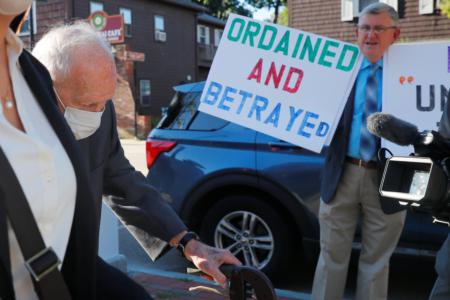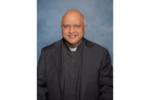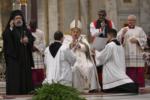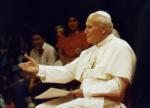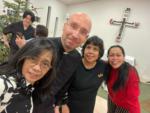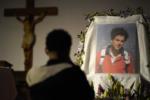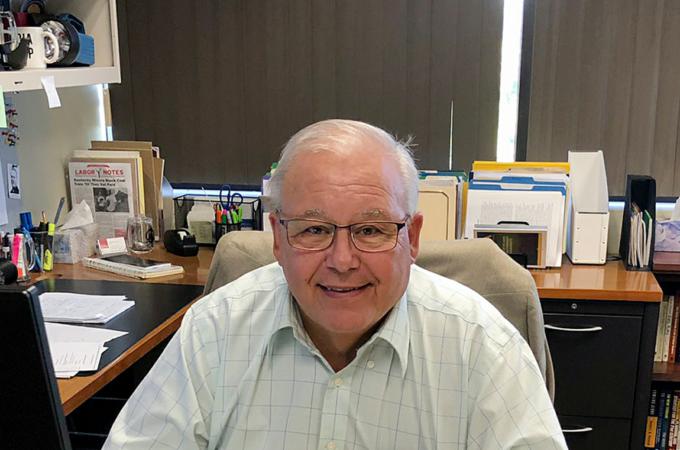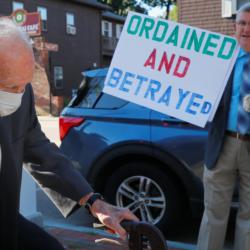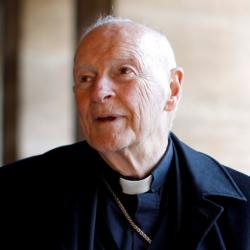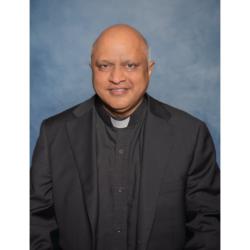New director brings long union experience to Labor Guild
BRAINTREE -- When David Kowalski first contacted the Labor Guild, he had no idea he would one day become its president and executive director. He was a worker looking to further his education, like the many others who have benefited from the guild's programs throughout its history.
He was a utility worker for a gas company and a founder of his local, the Utility Workers Union of America Local 318. When he became president of his local in 1985, he decided to take courses offered by volunteer instructors at the Labor Guild.
In the Guild, Kowalski felt like he was "part of a bigger movement," he said in an Aug. 29 interview with The Pilot.
He described the Guild as a "training camp" for "rank-and-file workers that want to come in and learn how to protect themselves, how to make sure they're not being taken advantage of by their employers."
Kowalski graduated from the University of Massachusetts Boston's Labor Studies Program in 1990 and went on to do graduate studies in dispute resolution. Over the course of his 42-year career, he spent about 25 years as an active board member for his union, and more than half of those years serving as its president.
Five years ago Kowalski was asked to teach a course at the Labor Guild.
"Not knowing what to teach, I said, 'Well, what is it that I wanted to learn that I didn't learn in my formal education?' And the one thing I didn't have a good understanding of at the time was, how did labor unions come together? How did they start, and how did we get to the predicament we're in today?" Kowalski said.
He put together a course called "Power and Struggle," drawing on economics, government, and the history of the labor movement.
Kowalski said the Guild is rooted in Pope Leo XIII's encyclicals, written in the 1890s, about the Judeo-Christian concept of respect for the human being.
"We're all about economic and social justice. And this is what we try to teach our students about. We try to give them the knowledge and the courage to be able to stand up to their employer in a labor-management arena," Kowalski said.
When Franklin Delano Roosevelt was president, there was a "proliferation" of organizing unions. The problem, Kowalski said, was that not everyone knew how to run an effective union.
Labor law was so new, "only the practitioners of it knew how to operate. So that left a big vacuum in the field of labor," Kowalski said.
This problem needed to be addressed on a national level because so many workers were joining unions across the United States.
"It was actually the Catholic Church that stepped into that vacuum," Kowalski said.
Volunteer instructors taught courses about workers' rights, how to operate unions, and how to communicate between labor and management. The Labor Guild continues this tradition, bringing in academics, attorneys, members of government agencies, and professional negotiators and mediators to teach laborers and management.
"It basically took the mystery out of labor unions," Kowalski said.
At their peak, Kowalski said, industrial relations schools could be found in 200 cities across the United States, including Brookline, Lawrence, Lowell, and Lynn. Now, the Labor Guild of the Archdiocese of Boston is the only one still in operation.
"Even though we're still a Catholic institution under the wing of the Catholic Church, we're very much open to everyone," Kowalski said, noting that the Guild has been an ecumenical group since its inception.
After teaching courses for a few years, Kowalski was asked to join the Guild's board of directors. He had been retired for two years when, in January 2019, he was asked to take over as president and fill the role of executive director.
Regarding his temporary role as executive director, Kowalski said he and the board hope to find a successor "with the vision we all share, to take our Guilders and the model we are formulating now into the future for the next generation."
Kowalski said his goals include expanding the Guild's outreach to bring its services to the people that need them, particularly low-wage earners and immigrant communities.
"There's a real hunger for our course curriculum. People want change, and they want stronger labor unions," he said.
Classes are currently held in the Pastoral Center, but the campus will move to the Massachusetts Nurses Association in Canton in the spring of 2020.
"What I learned on Monday nights here, I put into practice Tuesday morning. So what we do here is real, and it goes into effect and it makes a difference," Kowalski said.
